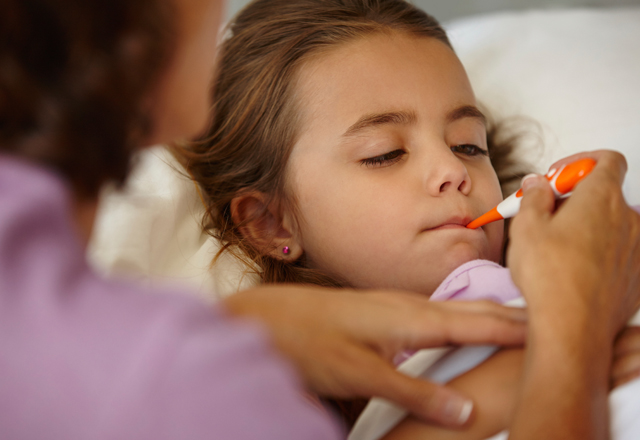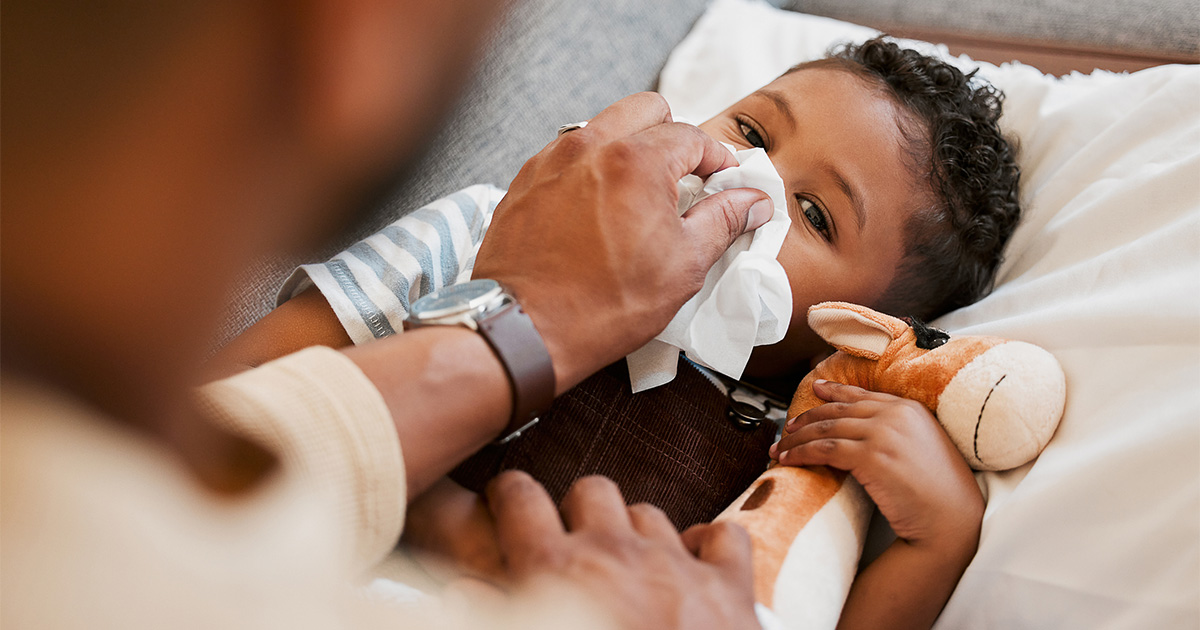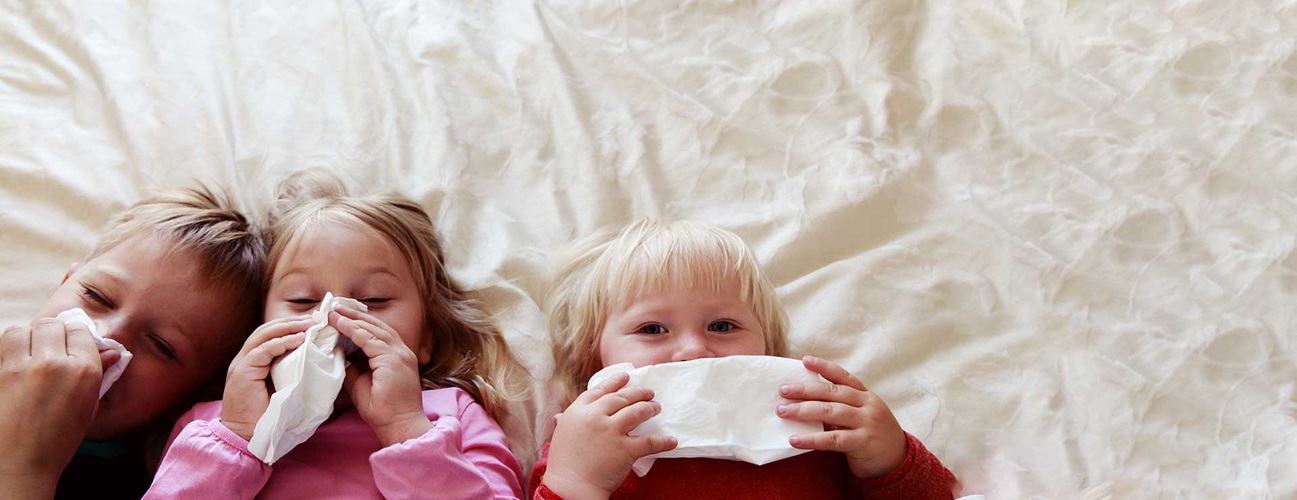What to Do When Your Child Has Flu?
When your child has the flu, focus on rest, hydration, and nourishment. Create a cozy space for them to relax and sleep well with soft blankets. Keep them hydrated with water and soothing soups. Serve foods rich in nutrients to help them recover. If needed, use over-the-counter medications as directed. If symptoms are severe, consult a doctor. Show care and love to help your child feel better quickly. Additional tips can guide you through this challenging time and guarantee your child’s comfort and recovery.
Key Takeaways
- Provide comfort and rest in a calming environment.
- Ensure hydration with water and clear fluids.
- Offer nutrient-rich, easy-to-digest foods.
- Use over-the-counter medications cautiously.
- Consult a doctor for severe symptoms or complications.
Recognizing Flu Symptoms

When your child has the flu, it’s important to be able to recognize the symptoms early on to provide them with the care they need. Prevention is key in keeping the flu at bay. Encouraging good hand hygiene, teaching your child to cover their mouth when coughing or sneezing, and avoiding close contact with sick individuals are all essential steps in flu prevention. Additionally, getting the flu vaccine is a highly effective way to protect your child from the flu virus.
Recognizing the symptoms of the flu is essential. Keep an eye out for signs like a high fever, chills, body aches, fatigue, cough, sore throat, and a runny or stuffy nose. If your child displays these symptoms, it’s important to consult a healthcare provider promptly for proper diagnosis and treatment.
Providing Comfort and Rest

To help your child feel more comfortable and recover faster from the flu, it’s important to create a soothing environment that promotes rest and relaxation. Maintaining a consistent sleep schedule can aid in their recovery. Make sure your child gets plenty of rest by establishing a bedtime routine that encourages relaxation, such as reading a book or listening to calming music before bed.
Creating a cozy environment is key to providing comfort. Make their bed with fresh, soft sheets and cozy blankets to help them feel snug and secure. Dim the lights in their room to create a calming atmosphere that supports restful sleep. Additionally, keeping the room at a comfortable temperature can help alleviate any discomfort your child may be experiencing.
Hydration and Nutrition

Ensuring your little one stays hydrated and eats nutritious foods is essential when they have the flu.
Encourage them to drink plenty of fluids like water, clear soups, and electrolyte solutions to prevent dehydration.
Offer easy-to-digest, nutrient-rich foods to support their immune system and help them feel better soon.
Fluid Intake
Making sure your child stays well-hydrated is essential in helping them recover from the flu effectively. During this time, offering electrolyte drinks like Pedialyte or Gatorade can help replenish lost fluids and essential minerals due to fever and sweating. These drinks can also aid in restoring the electrolyte balance in your child’s body, keeping them hydrated and energized.
Additionally, herbal teas can be a soothing and hydrating option for your child. Chamomile tea, for example, is known for its calming properties and can help relieve flu symptoms like sore throat and congestion. Offering warm herbal teas can also provide comfort and encourage your child to drink more fluids throughout the day.
Remember to encourage your child to sip on fluids regularly, even if they don’t feel like drinking a lot at once. Small, frequent sips can help prevent dehydration and support their recovery from the flu.
Nutritious Foods
Encouraging your child to consume nutritious foods is essential for maintaining hydration and providing essential nutrients during their flu recovery. Including immune boosters in their meals can help strengthen their immune system and aid in fighting off the flu. Foods rich in Vitamin C like oranges, strawberries, and bell peppers can be great additions to their diet. Additionally, incorporating zinc sources such as lean meats, nuts, and seeds can further support their immune health.
Meal planning is important during this time to make sure your child is receiving a variety of nutrients. Aim to include a balance of carbohydrates, proteins, healthy fats, and vitamins in each meal. Consider preparing easy-to-eat options like vegetable soups, whole grain toast with avocado, or yogurt with fresh berries. These choices can provide the necessary energy and nutrients for your child’s recovery.
Remember to offer plenty of fluids alongside nutritious foods to keep your child hydrated. Hydration plays a key role in helping the body recover from illness.
Over-the-Counter Medications
Let’s talk about over-the-counter medications for your child’s flu.
It’s important to know the correct dosage and be aware of any common side effects.
We’ll guide you through how to safely use these medications to help your little one feel better soon.
Medication Dosage Guidelines
Be sure to carefully follow the recommended dosage guidelines when giving over-the-counter medications to your child during their flu illness.
When managing fever with medications like acetaminophen or ibuprofen, it’s essential to use the correct dosage based on your child’s age and weight.
Always check the medication label or consult your healthcare provider for the appropriate amount to give.
Monitoring symptoms is vital in determining if the medication is helping.
Keep track of your child’s temperature and observe how they’re feeling to see if the medication is providing relief.
Common Side Effects
When your child is taking over-the-counter medications for flu symptoms, it’s important to be aware of any common side effects that may occur. While these medications can help alleviate your child’s discomfort, they may also come with some potential side effects. Some common side effects include drowsiness, upset stomach, or allergic reactions. These side effects are usually mild and temporary, but it’s vital to monitor your child closely.
In managing these side effects, make sure your child gets plenty of rest and stays hydrated. If they experience drowsiness, avoid activities that require focus or coordination. In the case of an upset stomach, bland foods and small, frequent meals can help. If allergic reactions occur, stop the medication immediately and seek medical attention.
Understanding the recovery process and the potential complications is important. Most children recover from the flu within a week, but some may take longer. If your child’s symptoms worsen or persist beyond this timeline, consult a healthcare provider.
When to Consult a Doctor

If your child is experiencing severe symptoms such as persistent high fever or difficulty breathing, it’s important to seek medical attention promptly. In such cases, consulting a doctor is essential for a thorough assessment of your child’s condition and to establish an appropriate treatment plan. When in doubt, it’s always best to err on the side of caution and seek medical advice to address any health concerns.
A doctor’s assessment is critical to determine the severity of the flu and whether any complications have arisen. They can provide guidance on the best course of action to alleviate symptoms and prevent further escalation of the illness.
Additionally, a healthcare professional can offer valuable recommendations on how to manage flu symptoms at home and when to consider hospital care if the situation worsens.
Preventing Flu Spread
To help protect others from getting sick, it’s important to take steps to prevent the spread of the flu, especially when your child is showing symptoms. Make sure to adhere to school policies regarding illness. Keep your child at home until they’re fever-free for at least 24 hours without the use of fever-reducing medications. Encourage frequent handwashing, covering coughs and sneezes with a tissue or elbow, and avoiding close contact with others.
Household disinfection is vital in stopping the flu from spreading within your family. Clean and disinfect commonly touched surfaces such as doorknobs, light switches, and toys. Use EPA-approved disinfectants and follow the instructions on the label for effective use.
Remember to wash your child’s bedding, towels, and clothing regularly, especially if they’ve been in contact with someone who’s sick.
Frequently Asked Questions
Can I Give My Child Herbal Remedies for the Flu?
When your child has flu, you may wonder if herbal remedies are safe. While natural remedies can be effective, it’s important to contemplate potential risks. Always consult a healthcare provider before giving your child herbal remedies.
How Can I Make Sure My Child Doesn’t Infect Siblings?
To prevent spreading flu to siblings, enforce quarantine measures. Encourage good hygiene practices like frequent handwashing, covering coughs/sneezes, and avoiding sharing items. Keep sick child in a separate room if possible. Protect siblings with these simple steps.
Is It Safe to Use a Humidifier in My Child’s Room?
Yes, using a humidifier in your child’s room is safe if used correctly. Benefits include easing congestion and soothing coughs. Risks may arise from improper cleaning or excessive humidity. Maintain proper maintenance for effectiveness.
Should I Keep My Child Home From School if They Have the Flu?
If your child has the flu, keeping them home from school is crucial. Remote learning can be effective during this time. Communicate with the school about your parental responsibilities and make sure your child gets the needed rest and care.
Can My Child Get the Flu Again in the Same Season?
Yes, your child can get the flu again in the same season. Even if they’ve had the flu already, getting the flu vaccine can help their immune system fight off different strains and reduce the risk of getting sick again.
Conclusion
Remember, when your child has the flu, it’s important to recognize the symptoms, provide comfort and rest, keep them hydrated and fed, and consider over-the-counter medications if needed.
If their symptoms worsen or persist, don’t hesitate to consult a doctor. And most importantly, take steps to prevent the flu from spreading to others.
Your child’s health and well-being are the top priority, so make sure to take good care of them during this time. Stay strong, and remember that they’ll get better soon.

Chad Adan Kace, a young dad from Vermont, shares his parenting journey with a touch of humor and lots of love. Father to a lively baby, he explores the joys and challenges of fatherhood through his stories.







